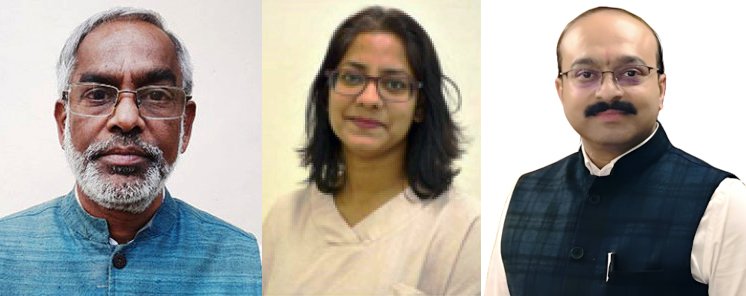Three faculty members of North-Eastern Hill University (NEHU) have been named among the Top 2 per cent Scientists of the World in the latest ranking released by Stanford University, USA.
The recognition is based on a rigorous analysis of citation impact from the Scopus database and highlights scholars whose research has significantly influenced their fields through high citation counts and impactful contributions.
The researchers from NEHU include Prof. Asit K. Chandra from the Department of Chemistry (School of Physical Sciences), Prof. Timir Tripathi from the Department of Zoology (School of Life Sciences), and Dr. Shruti Shukla from the Department of Nanotechnology (School of Technology).
This recognition underscores their commitment to advancing knowledge in their respective disciplines and showcases the role of NEHU as a hub of cutting-edge research.
Prof. Asit K. Chandra, a leading figure in the field of theoretical and computational chemistry, has made significant contributions to understanding complex molecular systems.
Prof. Timir Tripathi has gained international acclaim in the field of biochemistry and biophysics, specifically in the study of protein structure and drug discovery.
Dr. Shruti Shukla’s research focuses on the synthesis, characterization, and application of nanostructures in drug delivery, environmental cleanup, and the development of advanced materials.
NEHU Vice Chancellor Prof. Prabha Shankar Shukla expressed his pride in this achievement, stating, “The inclusion of our faculty members in Stanford University’s Top 2 per cent Scientists of the World list is a testament to the high standards of research and innovation which is promoted at NEHU. The work of these scientists represents our dedication to contribute to global scientific advancements. Their recognition is a reflection of the broader mission of NEHU to encourage excellence in research and inspire future generations of scholars.”
The Top 2 per cent Scientists list, curated by Stanford University, provides a global ranking of researchers based on several citation indicators and the impact of their published work as indexed in the Scopus database.
The list celebrates researchers whose work has had a profound and lasting impact on their fields and is measured through citation metrics that reflect both the quality and influence of their research contributions.























